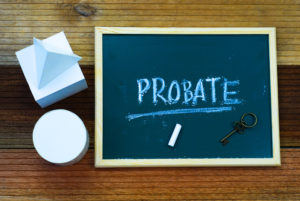 Some people believe an easy way to avoid probate is to add your children to your bank accounts and deed. This strategy may not work as planned.
Some people believe an easy way to avoid probate is to add your children to your bank accounts and deed. This strategy may not work as planned.
What happens if your child causes a severe car accident? Your account can get pulled into your child’s lawsuit. When you place your child on your deed or bank accounts, you are giving them partial ownership of your property. What if your child gets divorced or files bankruptcy? Their creditors can take your property.
What about taxes?
By adding a child’s name to your property as an estate planning technique, your child will miss out on a tax break called stepped-up basis at death. For assets valued at the date of your death, your heirs are taxed only on gains realized from the time of your death.
Adding your children’s names to property deprives them of the ability to qualify for the stepped-up basis. Although putting your child’s name on assets seems like a simple estate planning technique, the scenario can cost more than you think. You will not be able to sell the home or refinance your mortgage without your child’s permission. Technically, your child could sell shares of the property without your consent.
Other risks may include:
- Claims from credit card companies, lending companies or liability claims stemming from an accident could put your home at risk if your child is named on the deed.
- When your child divorces, his or her property is equitably divided. If your child is on the deed to your home, the house will be subject to division by the court. Your child’s former spouse may be entitled to a share of your home.
- If your child files for bankruptcy, the court may be entitled to his or her share of your home, which can be sold to satisfy his or her debts.
- If your children sell the house after your death, they will likely incur a capital gains tax for the difference between your purchase price and sale price.
- If your children fall on hard times, due to a job loss, health crisis, or addiction, they may be tempted to dip into your bank account until nothing is left.
- If your child has a sudden health event and is left disabled or incapacitated, your money can be spent to help pay for care before Medicaid or disability benefits kick in.
- Adding your child to an account or deed may constitute a gift requiring the filing of a gift tax return with the IRS.
- If you have other children or family members, this may create a family feud. Due to geographics, you may add the closest child to your accounts. When you die, the entire bank account passes to that child, who is not obligated to share it with his or her siblings. If the child does share it, he or she may be required to file a gift tax return.
There are other effective estate planning tools to avoid or limit your exposure to these situations. An experienced attorney can ensure your wishes are honored without the costs and risks associated with putting your children’s names on your deed and other assets.